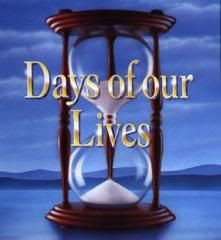Days of Love
Joe and I followed our last Friday of the month gig at Café Apollonia with a gig out in South Hadley’s Buttery Brook Park, part of a summer concert series that the Friends of the Park organize every year. My cousin G lives out that way and had arranged it (not the one I mentioned in June’s Rembetiko of the Month post—I have a lot of cousins named G). We did it last year too.
Mike the drummer and K the accordion player (along with K’s lovely wife and her mother) drove out with us. G played guitar, and his daughter L played violin. His other daughter V sat in as well, playing a small hand drum, just as she did last year. It was nice to have some of the original members of Skordalia finally get to meet and play with some of the newer members. Overall, it was a good set.
Afterwards, we went back to my cousin’s place for some μεζέδες (meh-ZEH-thes), which is like the Greek version of tapas. His wife J is among the warmest, kindest, most generous and hospitable people I have ever met. She put out quite a spread for us, which she always does, and she’s a fantastic cook. Her parents were there as was my cousin G’s mother (my aunt) along with another cousin G and his long-time girlfriend. We ate, we drank, we laughed, and we listened to some old reel-to-reel tapes from the 1950s of my late uncle (G’s father) N playing bouzouki and singing.
My uncle N has been dead for almost three years now. He was a real inspiration for me musically. He taught me quite a few of the songs that I now play. His son has been digitizing the old reel-to-reels, which are full of old Greek melodies with my uncle alternating between bouzouki and piano. I listen to the CDs my cousin gives me of his dad, and I continue to learn new songs, so in a way, he’s still teaching me music.
 At one point, I ventured into the family room where my cousin L (the violinist) was watching TV with her younger sister and a few of their cousins on their mother’s side. A commercial for Days of Our Lives came on, and I jokingly asked L if she ever watched it. She said that she did and that her parents used to as well, especially when her dad used to be able to come home every afternoon for lunch.
At one point, I ventured into the family room where my cousin L (the violinist) was watching TV with her younger sister and a few of their cousins on their mother’s side. A commercial for Days of Our Lives came on, and I jokingly asked L if she ever watched it. She said that she did and that her parents used to as well, especially when her dad used to be able to come home every afternoon for lunch.
I explained that when I lived in Greece, I also used to be home in the afternoons and got hooked on Days, which was shown on one of the main networks. They didn’t do dubbing, so it was all in English with subtitles. The only difference is that they didn’t call it “Days of Our Lives,” but rather Μέρες Αγάπης, which translates as “Days of Love.” L asked why, and I explained that “Days of Our Lives” is an idiomatic expression in English that just wouldn’t translate well into Greek, so they renamed it.
However, as I began to think about it, it occurred to me that if they tried to translate “Days of Our Lives” into Greek, the resulting title, Μέρες των Ζωών Μας, could mean both “Days of Our Lives” and “Days of Our Livestock,” since in Greek ζωή (zoh-EE) means life, but ζώον (ZOH-on) means animal. However, the genitive plural of each of these nouns would be the same, therefore rendering the title ambiguous. In reality, I think that there might be a difference in accent between the two words, but I’m not sure about that. I’ll have to ask P the fiddler, since his course of study in Boston is Greek language and literature.
In any event, I decided to ask my aunt D (G’s mother) about it. I could tell she was baffled from the get go, but did her best to try to figure out how to translate “Days of Our Lives” into Greek in a way that did not produce the unflattering “Days of Our Livestock.” After wrestling with it for a bit, she admitted that her Greek isn’t as good as it used to be, so we asked G’s mother-in-law, a native speaker who was born in Greece (unlike my aunt, who was born here).
We explained that we were trying to figure out why the Greeks had chosen to render “Days of Our Lives” as “Days of Love” instead of translating it literally and asked her how one might say “Days of Our Lives” in Greek. She thought about it for a few moments, and then said, “that would be τά περασμένα χρόνια,” meaning “bygone years.” I pretty much couldn’t control my laughter at that point, as my aunt and her in-law began a philosophical discussion about whether “Days of Our Lives” referred to past, present, or future days. I was beginning to wonder whether G’s mother-in-law understood that we were talking about a soap opera. It really was priceless. Perhaps you had to be there.
Mike the drummer and K the accordion player (along with K’s lovely wife and her mother) drove out with us. G played guitar, and his daughter L played violin. His other daughter V sat in as well, playing a small hand drum, just as she did last year. It was nice to have some of the original members of Skordalia finally get to meet and play with some of the newer members. Overall, it was a good set.
Afterwards, we went back to my cousin’s place for some μεζέδες (meh-ZEH-thes), which is like the Greek version of tapas. His wife J is among the warmest, kindest, most generous and hospitable people I have ever met. She put out quite a spread for us, which she always does, and she’s a fantastic cook. Her parents were there as was my cousin G’s mother (my aunt) along with another cousin G and his long-time girlfriend. We ate, we drank, we laughed, and we listened to some old reel-to-reel tapes from the 1950s of my late uncle (G’s father) N playing bouzouki and singing.
My uncle N has been dead for almost three years now. He was a real inspiration for me musically. He taught me quite a few of the songs that I now play. His son has been digitizing the old reel-to-reels, which are full of old Greek melodies with my uncle alternating between bouzouki and piano. I listen to the CDs my cousin gives me of his dad, and I continue to learn new songs, so in a way, he’s still teaching me music.
 At one point, I ventured into the family room where my cousin L (the violinist) was watching TV with her younger sister and a few of their cousins on their mother’s side. A commercial for Days of Our Lives came on, and I jokingly asked L if she ever watched it. She said that she did and that her parents used to as well, especially when her dad used to be able to come home every afternoon for lunch.
At one point, I ventured into the family room where my cousin L (the violinist) was watching TV with her younger sister and a few of their cousins on their mother’s side. A commercial for Days of Our Lives came on, and I jokingly asked L if she ever watched it. She said that she did and that her parents used to as well, especially when her dad used to be able to come home every afternoon for lunch.I explained that when I lived in Greece, I also used to be home in the afternoons and got hooked on Days, which was shown on one of the main networks. They didn’t do dubbing, so it was all in English with subtitles. The only difference is that they didn’t call it “Days of Our Lives,” but rather Μέρες Αγάπης, which translates as “Days of Love.” L asked why, and I explained that “Days of Our Lives” is an idiomatic expression in English that just wouldn’t translate well into Greek, so they renamed it.
However, as I began to think about it, it occurred to me that if they tried to translate “Days of Our Lives” into Greek, the resulting title, Μέρες των Ζωών Μας, could mean both “Days of Our Lives” and “Days of Our Livestock,” since in Greek ζωή (zoh-EE) means life, but ζώον (ZOH-on) means animal. However, the genitive plural of each of these nouns would be the same, therefore rendering the title ambiguous. In reality, I think that there might be a difference in accent between the two words, but I’m not sure about that. I’ll have to ask P the fiddler, since his course of study in Boston is Greek language and literature.
In any event, I decided to ask my aunt D (G’s mother) about it. I could tell she was baffled from the get go, but did her best to try to figure out how to translate “Days of Our Lives” into Greek in a way that did not produce the unflattering “Days of Our Livestock.” After wrestling with it for a bit, she admitted that her Greek isn’t as good as it used to be, so we asked G’s mother-in-law, a native speaker who was born in Greece (unlike my aunt, who was born here).
We explained that we were trying to figure out why the Greeks had chosen to render “Days of Our Lives” as “Days of Love” instead of translating it literally and asked her how one might say “Days of Our Lives” in Greek. She thought about it for a few moments, and then said, “that would be τά περασμένα χρόνια,” meaning “bygone years.” I pretty much couldn’t control my laughter at that point, as my aunt and her in-law began a philosophical discussion about whether “Days of Our Lives” referred to past, present, or future days. I was beginning to wonder whether G’s mother-in-law understood that we were talking about a soap opera. It really was priceless. Perhaps you had to be there.












0 Comments:
Post a Comment
<< Home